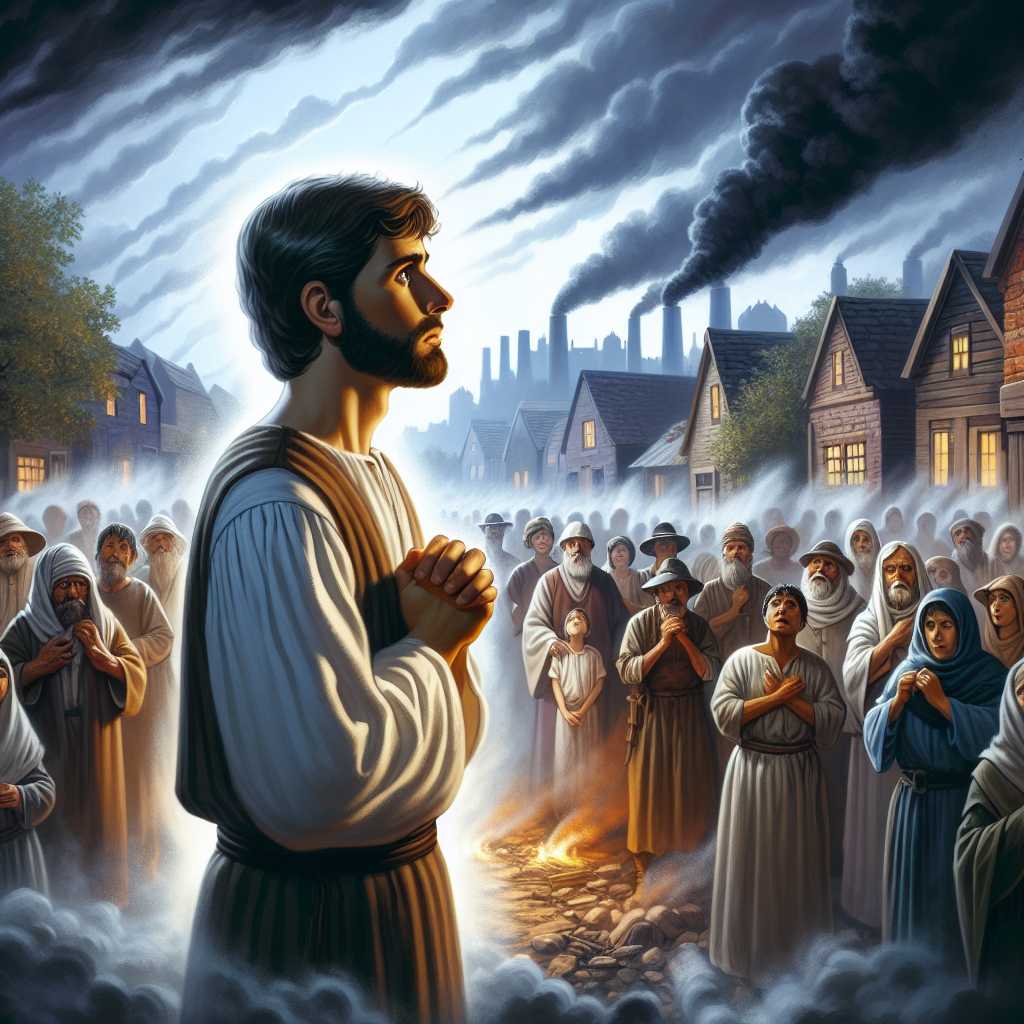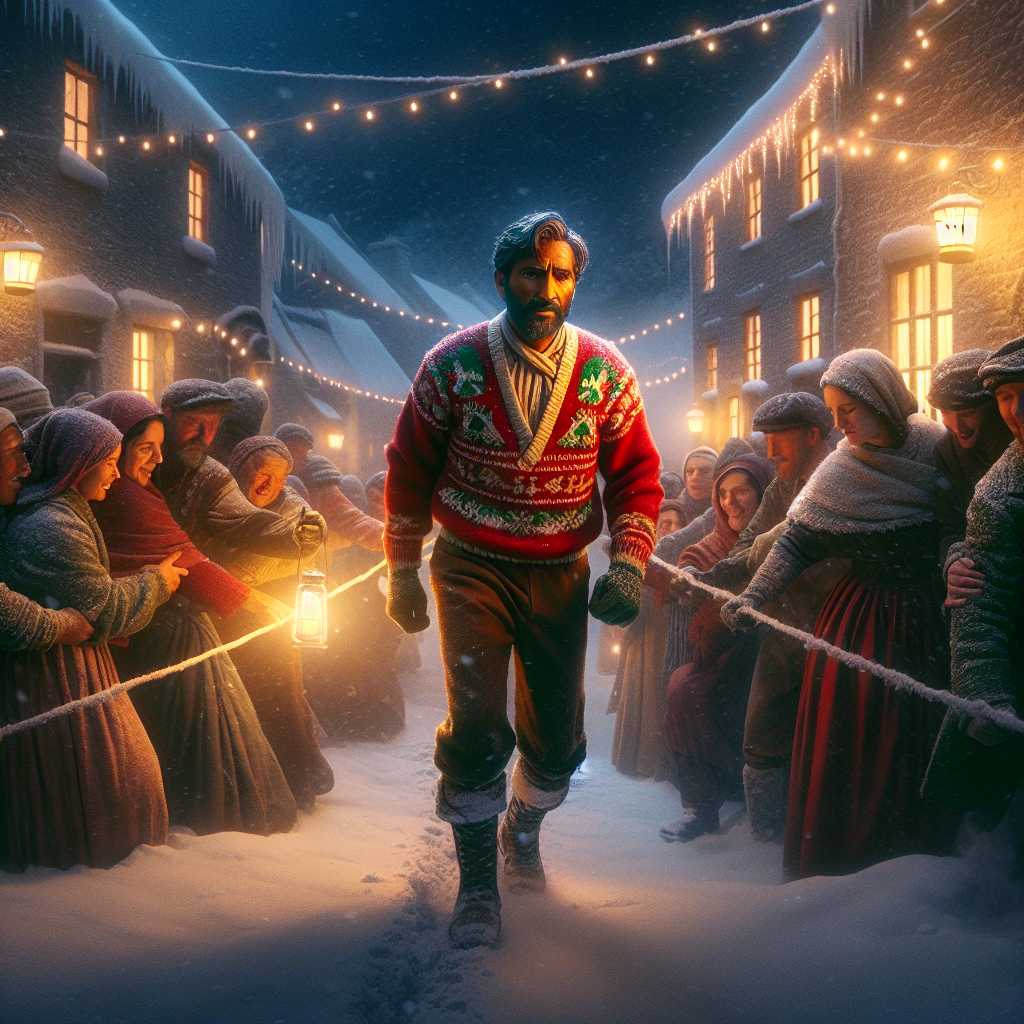
Once upon a time, in a quaint village nestled between verdant hills, lived a humble shepherd named Jacob. Known for his unwavering faith and kind heart, Jacob tended his flock with diligence and love. His days were spent guiding his sheep through luscious pastures, always mindful of the Creator's hand in all things.
One warm summer afternoon, as the sun began its descent, casting long, golden rays across the meadow, Jacob gathered his flock near a bubbling brook. Settling on a moss-covered rock, he pulled out a small, worn leather-bound book—the Holy Scriptures. It was his tradition to read from it daily, drawing strength and wisdom from the sacred words.
As he read aloud from the Psalms, his voice soft yet filled with conviction, a feeling of serenity enveloped the scene. It was as if time itself paused to listen to the man speak.
"The Lord is my shepherd; I shall not want. He maketh me to lie down in green pastures: he leadeth me beside the still waters."
In that moment, Jacob paused, his eyes lifting from the pages to gaze at the serene landscape before him. A contented smile touched his lips, for he believed these words with all his heart. Truly, the Lord was his shepherd, guiding him through the valleys and over the hills, providing for his every need.
However, Jacob's peaceful life was about to face a test of faith like none he had encountered before.
One day, as dusk fell upon the village, a commotion stirred in the town square. Villagers were bustling about in a frantic state, their faces etched with worry and fear. Jacob, curious and concerned, approached the gathering crowd.
"What troubles you, my friends?" he asked, his voice calm amidst the clamor.
An elderly woman, her eyes wide with distress, responded, "A terrible plague has struck the neighboring village. Many have fallen ill, and they cry out for help. Our own doctor has traveled there, but he fears they may not have the strength to overcome this pestilence alone."
Jacob's heart ached for the suffering villagers. He knew that to offer help would be to risk his own life, yet his faith compelled him to act. Without a moment's hesitation, he declared, "I will go and offer my assistance. The Lord will guide and protect me."
The villagers watched in awe and admiration as Jacob prepared for his journey. He gathered supplies and provisions, said a heartfelt prayer for guidance, and set off toward the afflicted village.
The road was long and arduous, but Jacob's spirit remained undeterred. He prayed continuously, finding solace in his unwavering belief that the Lord was with him. As he approached the village, he saw the toll the plague had taken. Houses were marked with signs to warn of the sickness within, and a sense of despair hung heavy in the air.
Undaunted, Jacob sought out the village leader, offering himself as a servant to aid in any way possible. He spent days and nights caring for the sick, offering comfort and prayer, administering medicine, and sharing what little food and water he had. His presence was a beacon of hope amid the darkness.
One evening, as Jacob knelt by the bedside of a suffering child, he gently recited a passage from the Holy Scriptures:
"Yea, though I walk through the valley of the shadow of death, I will fear no evil: for thou art with me; thy rod and thy staff they comfort me."
The child's labored breathing slowed, and a peaceful expression spread across their face. Though fragile, a faint smile formed. Jacob smiled softly back, tears welling in his eyes. In that moment, he felt the Lord's presence more profoundly than ever before.
Days turned into weeks, and the relentless efforts bore fruit. Slowly but surely, the villagers began to recover. Jacob's faith and tireless work had made a significant impact. While some lives were lost, many more were saved, and the once desolate village began to heal, both in body and spirit.
When Jacob finally returned to his own village, he was welcomed as a hero. Yet he humbly attributed the success to the power of faith and the grace of God. His experience had deepened his devotion, and his story became a testament to the strength of unwavering faith in the face of adversity.
From that day forward, Jacob continued to live his life as a shepherd, ever a servant of God, ever a beacon of hope. His story was told and retold, inspiring generations to come. And so, in the heart of that humble village, the faithful shepherd's legacy endured—a reminder of the Lord's enduring presence and the power of a heart devoted to Him.
As the years went by, whenever a challenge arose, the villagers would remember Jacob's unwavering faith and echo his favorite verse:
"The Lord is my shepherd; I shall not want."
In the end, Jacob's faithfulness and compassion had woven a tapestry of hope that would never fade, a living testament to the power of God's love and the resilience of a devoted heart.










